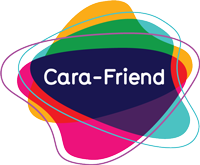Taking care of our mental health is especially important after lockdown, with many of us struggling to deal with isolation, depression and societal homophobia without our usual support circles and services.
But due to the lack of resources amongst LGBTQIA+ community organisations and chronic underinvestment by government, we can face very long waiting times to access even basic support mechanisms.
With one on one and group support our new Mental Health & Mindfulness Project can help to give you the tools to take charge of your own mental, emotional and physical well-being, and has been designed to ensure that fast ongoing support is available when you need it.
What is mindfulness?
Mindfulness is the basic human ability to be fully present, aware of where we are and what we’re doing, and not overly reactive or overwhelmed by what’s going on around us.
While mindfulness is something we all naturally possess, it’s more readily available to us when we practice on a daily basis.
Whenever you bring awareness to what you’re directly experiencing via your senses, or to your state of mind via your thoughts and emotions, you’re being mindful. And there’s growing research showing that when you train your brain to be mindful, you’re actually remodelling the physical structure of your brain.
The goal of mindfulness is to wake up to the inner workings of our mental, emotional, and physical processes.
What is meditation?
Meditation is exploring. It’s not a fixed destination. Your head doesn’t become vacuumed free of thought, utterly undistracted. It’s a special place where each and every moment is momentous. When we meditate we venture into the workings of our minds: our sensations (air blowing on our skin or a harsh smell wafting into the room), our emotions (love this, hate that, crave this, loathe that) and thoughts (wouldn’t it be weird to see an elephant playing a trumpet).
Mindfulness meditation asks us to suspend judgment and unleash our natural curiosity about the workings of the mind, approaching our experience with warmth and kindness, to ourselves and others.
How do I practice mindfulness and meditation?
Mindfulness is available to us in every moment, whether through meditations and body scans, or mindful moment practices like taking time to pause and breathe when the phone rings instead of rushing to answer it.
There may be occasions when counselling is also a very useful tool to help you with your mental health. We can refer you to one of our partner organisations who offer counselling, and through our growing network of partners try to alleviate those long waiting times for appointments.

